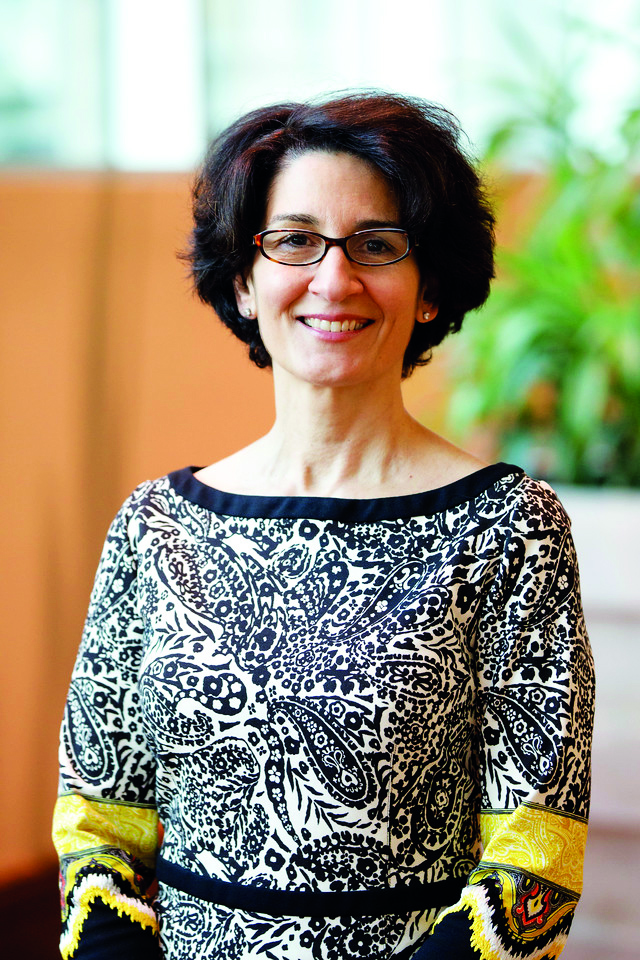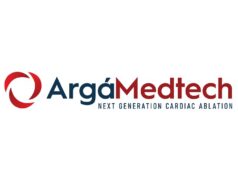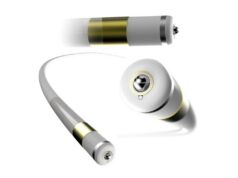 Athena Poppas is chief of cardiology at the Alpert Medical School of Brown University (Providence, USA) and has recently begun her term as the president of the American College of Cardiology (ACC). She tells Cardiac Rhythm News about her expertise in treating heart disease in pregnant patients, ACC’s commitment to advancing the field of electrophysiology, and the organisation’s response to COVID-19.
Athena Poppas is chief of cardiology at the Alpert Medical School of Brown University (Providence, USA) and has recently begun her term as the president of the American College of Cardiology (ACC). She tells Cardiac Rhythm News about her expertise in treating heart disease in pregnant patients, ACC’s commitment to advancing the field of electrophysiology, and the organisation’s response to COVID-19.
Why did you pursue a career in medicine?
Medicine was the intersection of human care and science. To be able to apply deep understanding of the fascinating world of biology to help others to heal is quite a privilege.
What drew you to cardiology?
Cardiology is one of the most dynamic areas in medicine. There are exciting, rapid advances, which are able to be applied to care at the bedside and improve the health of a population and individuals. There are also many aspects to cardiology and the variety of approaches—electrical, structural, haemodynamics—as well as type of work—direct patient care, longitudinal care, hands-on invasive work and complex imaging assessment—which make it so vibrant.
Who have been your career mentors and what have you learned from them?
I have been fortunate to have many mentors along the way, such as Roberto Lang, who instilled in me a passion for the clinical and research aspects of echocardiography; Al Buxton, who encouraged my academic interests and faculty development; Pam Douglas and Minnow Walsh, who were models of women leaders in cardiology and the ACC.
What do you feel have been the most important recent developments in the treatment of arrhythmias?
There have been many advances in electrophysiology, which have built upon prior scientific discoveries, trials and knowledge. In arrhythmia management we have seen a pivot in the treatment from medications to devices and ablations. Having a broad toolkit from which to work has improved the quality of care of patients with arrhythmias.
What advances in echocardiography do you hope to see in coming years, and how could these advance the diagnosis and treatment of arrhythmias?
Echocardiography is also a very dynamic area within cardiology with ongoing innovations which have improved our understanding of cardiovascular structure and function and lead to better patient care. Most recently, 3D imaging to guide surgical and percutaneous procedures and strain analysis of sub clinical disease are notable. Further application to EP procedures including 3D ICE (intracardiac echo) can reduce patient risk, need for anaesthesia and for fluoroscopy.
You are a specialist in the treatment of heart disease during pregnancy. Does pregnancy alter the approach to the treatment of arrhythmias?
Cardiac disorders in pregnancy are the greatest cause of morbidity and mortality and require a multidisciplinary approach to caring for the patient with considerations of the change in physiology and the exposure of the developing foetus. Arrhythmias in pregnancy are treated with medications which have a known safety profile and may need increasing doses. Ultimately one should never withhold appropriate treatment, such as defibrillation for unstable rhythms, as care of the mother is paramount and required for good foetal outcomes.
You have recently begun your term as president of the ACC, what will be your focus in the role?
As president of the American College of Cardiology, my role is to lead the organisation to accomplish our strategic priorities to generate and deliver actionable cardiovascular knowledge; advance quality, equity and value of care delivery; support of cardiovascular care members and healthcare systems; and ensure organisational growth and leadership development. In particular, our recently launched efforts to improve diversity and inclusion and strengthen scientific education for the future are at the front of our minds.
At a particularly challenging time for global healthcare, what will your strategy be for steering the organisation through the COVID-19 pandemic?
We know that COVID-19 has a greater impact on patients with existing cardiovascular disease, but there are many unknowns about how to manage these patients and protect healthcare workers while they do so. Before my presidency and during my presidency, ACC has been providing real-time guidance based on the latest scientific evidence available to cardiovascular physicians and care team members in managing their patients during this pandemic. We are also working with lawmakers to address COVID issues impacting the specialty, such as telemedicine coverage.
What role do organisations such as the ACC have to play in tackling the pandemic?
As COVID-19 continues to spread, the ACC is working to help members on the front lines best manage their patients. We have a global membership with a wide range of expertise who we are bringing together to develop and disseminate knowledge. Information is coming out quickly, so ACC has developed a COVID-19 hub on its website to make all the latest clinical guidance, clinical perspectives and front-line experience, regulatory and reimbursement updates, and webinars, available in one place. We have seen over 650,000 people access the documents within the hub since our first COVID-19 clinical bulletin, published in February. One of our most popular webinars was on the Chinese experience of the cardiovascular effects of COVID-19.
How can the ACC support advances in electrophysiology?
ACC is committed to continued collaborative work with our sub-specialty societies, such as HRS, to advance the field of electrophysiology. This includes advocacy efforts nationally, personalised educational offerings with self-assessment programmes, live programmes, as well as highlighting breakthrough science at our annual meeting and in JACC journals.

How has ACC sought to encourage diversity within the field?
The ACC has fully committed to improving diversity throughout the field of cardiology as a core component of our five-year strategic plan. We recognise that this is not just an issue for cardiologists, but it is also an issue for quality patient care. We know that that cardiology is not as diverse as the US population and is one of the medical specialties that the lowest percentages of women and minorities are entering into after medical school, but we are committed to finding out what barriers exist and making changes that foster a culture of diversity and inclusion. In 2016, the College established a task force on diversity and inclusion, which had an initial goal of addressing the low percentages of women entering the cardiology workforce. That mission has expanded to address all underrepresented groups. Last year, the College named its first director of diversity and inclusion to work with the task force to lead and expand the ACC’s diversity and inclusion initiatives. We have made many strides and we are continuously working towards a fully inclusive organisation and profession.
What advice would you give to someone who was starting out in cardiovascular medicine?
For those who are just starting on their career path in cardiology, I would advise that you always follow your passions and do what you love. By doing so, it will rarely feel like work. As well as this, you must remember to care for and advocate for yourself, as physician well-being is crucial to the functioning of our healthcare systems.
Outside of medicine, what are your hobbies and interests?
Outside of medicine, I enjoy many outdoor activities with my family and friends whether it is hiking, canoeing, skiing or roasting marshmallows around a lake campfire.
What would you have been if you had not been a medical doctor?
If I had not trained to become a doctor, I think I would have been a basic scientist in a research lab or, worked on healthcare policy for governmental or non-governmental agencies.
FACT FILE
Current appointments
■Chief, Section of Cardiology, Brown University
■Director, Echocardiography Laboratory, Rhode Island Hospital
■Cardiovascular Service Line, RI & Miriam Hospitals
■University Cardiology Foundation, Testing Committee member
Education and postgraduate training
1979–1983 Bachelor of Science, Brown University
1985–1989 Doctor of Medicine, University of Wisconsin Medical School
1989–1992 Internal Medicine, University of Wisconsin Hospital and Clinics
1992–1995 Cardiovascular Medicine, University of Chicago Hospital
Honours and awards
1994 Outstanding Cardiology Fellow, Upjohn Award, University of Chicago Hospital
1995 Young Investigator Award, American Heart Association, Scientific Conference on Cardiovascular Disease in Women
2006 Outstanding Teaching Award, Department of Medicine, Brown University Medical School
2014 Deans Excellence in Teaching Award, Brown University
2014 Reilly Cardiovascular Fellowship Teaching Award
Prior appointments
■Staff Physician, Section of Cardiology, University of Chicago Hospital
■Assistant Professor of Medicine, Section of Cardiology, University of Chicago
■Clinical Associate, Department of Medicine, Massachusetts General Hospital
■Co-Director, Echocardiography Laboratory, Rhode Island Hospital
■National Center of Excellence in Women’s Health, Clinical Care Working Group, member, Women and Infants Hospital
■Professor of Medicine, Section of Cardiology, Brown University
Society involvement
■President, American College of Cardiology
■Journal of the American Society of Echocardiography, Manuscript reviewer
■American Heart Association, Scientific Sessions Abstract Reviewer/ Moderator









